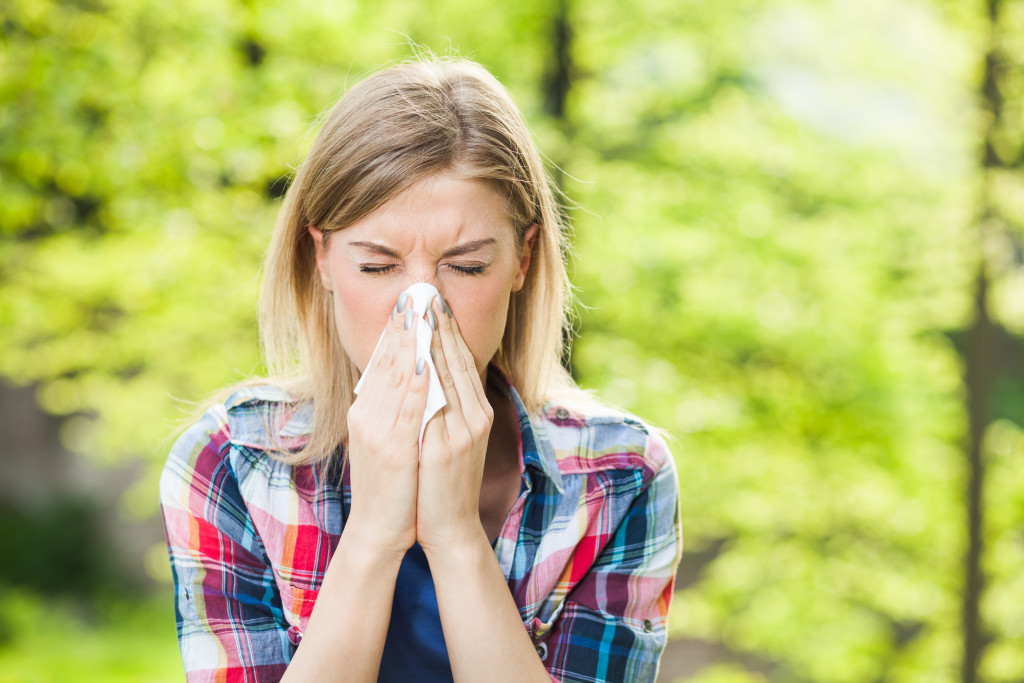You might not think allergies are a big deal, but they can be a real nuisance for the millions of people who suffer from them. Allergies can impact every aspect of your life, from work to social life. Here’s a look at how allergies affect you and what you can do to minimize their impact on your life.
Physical Health
Allergies can cause a wide range of physical symptoms, including sneezing, runny nose, coughing, itchy or watery eyes, nasal congestion and difficulty breathing. These symptoms may sometimes lead to complications such as sinus infections or asthma. Additionally, allergies can affect your overall energy level and make you feel fatigued.
Because of this, allergies can also make it difficult to do everyday activities, such as going for a walk outside or working in the garden. For example, being outdoors during peak pollen hours can trigger allergy symptoms if you’re allergic to pollen. And if you’re allergic to mould spores, working in the garden can be problematic because mould thrives in damp conditions. So it’s essential to consider your allergies when planning activities for the day.
Work
If you suffer from seasonal allergies, chances are they’ve impacted your work life somehow. Concentrating on your work is hard when you’re sneezing and sniffling all day long. Allergies are one of the leading causes of absenteeism in the workplace. If your allergies are bad enough, you might have to take a sick day (or two… or three). That can put a real damper on your productivity—and your wallet.
Social Life
Allergies can also take a toll on your social life. For example, if you have seasonal allergies, you might have to miss out on outdoor activities with your friends during peak allergy season. And if you have pet allergies but love spending time with your friends’ dogs or cats, that can be tough, too. Allergies can make it hard to enjoy the activities fully you love with the people you love. But there are ways to work around them—more on that later.

Mental Health
It’s not just physical symptoms that allergies can cause; they can also take a toll on your mental health. Suffering from constant sneezing, sniffling, and watery eyes can be frustrating. And when you add in the fatigue that comes with allergies, it’s no wonder many allergy sufferers report feeling anxious and depressed. If you’re struggling with mental health issues due to allergies, don’t hesitate to reach out for help from a mental health professional.
Living with allergies isn’t easy—but it is possible. There are ways to manage your allergies, so they don’t take over your life. Here are some of the ways you can do that.
Early Diagnosis
The first way to deal with allergies effectively is to get an early diagnosis. This can be challenging because some people don’t realize they have allergies until symptoms begin interfering with their daily life. If you think you might have allergies, talk to your doctor about your symptoms and options for treatment. If you don’t have the time to do this, don’t worry! You can now take allergy tests at home! It’s a simple way to diagnose and treat your allergies so that you can feel better fast, and the best part is that you don’t have to leave the comfort of your home.
Avoid Triggers
Another critical step in managing your allergies is learning what triggers them and avoiding them as much as possible. For example, if pollen makes you sneeze and wheeze, stay inside on days when the pollen count is high. Or if your allergies are triggered by pet dander, consider getting a hypoallergenic pet or asking your friends and family to keep their pets away when you’re around.
Manage Your Medications
If you need medications to help manage your symptoms, learn how to use them best. For example, if you have hay fever and take an antihistamine, ensure you know the correct dosage for maximum effectiveness. Additionally, there may be additional medications that can treat specific allergy symptoms, so talk with your doctor about these options.
Maintaining a Healthy Lifestyle
Along with the above strategies, there are some general lifestyle changes you can make that will help support your allergy management efforts. For example, eating a healthy diet and regular exercise can boost your immune system and reduce inflammation. Additionally, avoiding known allergens is another critical way to stay healthy. These include air pollutants like smoke and dust and foods like tree nuts and shellfish. With these simple steps, you can feel better soon! Try them out today!
In summary, managing allergies effectively is possible if you take the proper steps. Doing so can minimize your symptoms and help you live a healthier life. It can also help you perform better at work or school, enjoy outdoor activities with your friends and loved ones, and feel happier overall.

